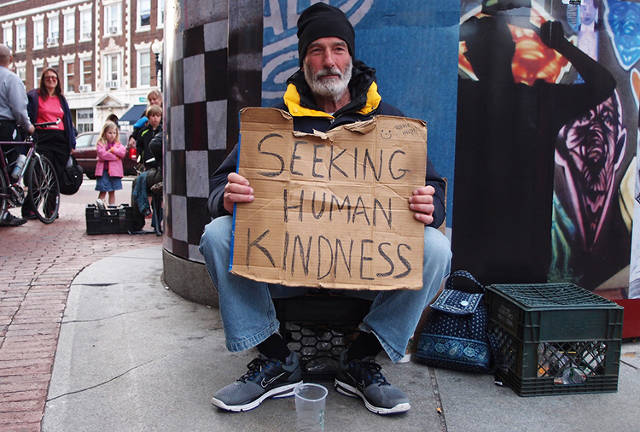In seminary, one moral dilemma seriously divided the class. The question was whether to give money to the homeless on the street in downtown Cincinnati, where the seminary was located.
This question concerned me directly, as I was also interning in Chicago and encountered several homeless people on my walk to the synagogue.
Most of the class said yes. We are not, Jewish tradition tells us, to “close our hand to an impoverished neighbor.”
The dilemma arises, however, because the neighbor referred to in the Talmud is a fellow Jew, and the tradition was shaped in a time when people lived in small villages, not major urban centers. Does the same practice apply today?
We never resolved the exact disagreement, but we did arrive at a consensus. We should try to have either a sandwich to give or a coupon for a McDonalds or other easily accessible restaurant. Why? Because those in need are fellow human beings, and each of us is created in the image of God.
What we have is not solely ours. “The earth is the Lord’s, and everything in it,” the Bible tells us. (Psalm 24)
In other words, what we own does not ultimately belong to us. It belongs to God, and we are stewards of it for all of God’s creation.
In modern America, this approach can feel counter-cultural. If we got it, we earned it, and it’s ours to do with what we please. We think a homeless person or a beggar must have done something wrong with their life, and it’s not our problem or responsibility to fix it.
Yet, the Bible reminds us we share one earth, and were created by one God. We are to “love your neighbor as yourself.” (Leviticus 19)
Are we looking out only for ourselves? Are we looking only for those we know or who look like us? Or are we truly doing for each of God’s children what we pray they would do for us? What do you think?


